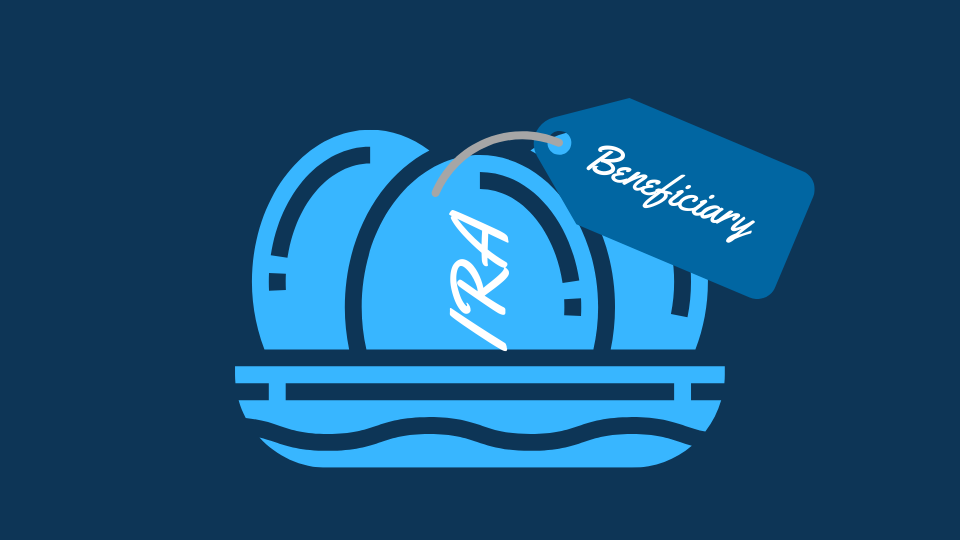
Beaird Harris Named to Worth’s 2025 List of Top RIA Firms for Excellence in Wealth Management
Beaird Harris Recognized in Worth’s list of “Top RIA Firms” for 2025 Beaird Harris is proud to announce our inclusion in Worth’s prestigious list of…


While the chances of you having a severe reaction to the coronavirus are low, it is a reminder of the importance to review your retirement and legal documents. Key among this review should be the beneficiaries you have assigned to all your retirement accounts. This includes reviewing primary beneficiaries and establishing secondary beneficiaries on all your IRAs, 401(k)s, 403(b)s and similar accounts. But it doesn’t stop there, you also need to understand and adjust beneficiaries because of new stretch IRA rules.
With the stretch IRA technique, you name a younger person—say, a child or grandchild—as beneficiary of your account. When you die, this non-spouse beneficiary can stretch out receiving the balance of funds from these inherited accounts over his or her longer life expectancy. A stretch IRA could allow withdrawals to go on for decades!
In the meantime, the funds in the account continue to grow with any taxes owed being deferred until the funds are withdrawn.
As you can imagine, the federal government wants their share of the earnings built up in these accounts. The old rules could put off the receipt of tax for another 30 years or more! Under the new rules, funds in an IRA or defined contribution plan, like a 401(k), must now be distributed to non-spousal beneficiaries within ten years of the account owner’s death.
This rule change makes assigning beneficiaries for your retirement accounts more important than ever, but the rule does not apply in all cases. The new rules do not apply to:
So as you review your beneficiaries, be aware of who will be required to withdraw funds sooner using these new rules. Changing your account beneficiaries with an understanding of these new rules can provide significant tax savings.
Consider converting funds into another account type. Fortunately, you can take some of the sting out of the situation by converting a traditional IRA to a Roth IRA. Unlike a traditional IRA, Roth contributions are never tax-deductible, but payouts from a qualified Roth account are 100% tax-free. While you must pay tax on the transfer in the year of the conversion, your heir will not have to deal with getting taxed when taking funds out of the account.
In other words, your beneficiary can arrange to take tax-free withdrawals from the Roth IRA, as long as the account is emptied out within ten years. Not quite a stretch IRA, but still a good deal.
Tax efficiency becomes more important than ever. Should you pay the tax with a pre-conversion to a Roth IRA to save the hassle for your heirs? Should an heir take the money out all at once? How much should you take out of an inherited account each year? Given the progressive nature of our tax system (currently 0% to 37%), taking a planned approach can save you a bundle in tax as the funds are withdrawn. This makes creating a tax plan and reviewing it more important than ever!
In light of all the pandemic uncertainty, this is an area you can review now to not only be better prepared, but to create a strategy that can yield tremendous tax savings for you and your heirs.
No Professional Advice, Client Relationship, or Reliance on Information
Please note that any information or content on our Website, or any forms or tools on our Website which allow you to submit information or make calculations, and your use thereof, are not intended to provide any kind of professional advice, consultation or service, including but not limited to, legal, accounting, tax, or business advice. Nor does any such information, content, forms, or tools, or your use thereof or reliance thereon, create or constitute an attorney/client, accountant/client, or consultant/client relationship. You should therefore not use our Website or reliance on any information, content, forms, or tools on our Website as a substitute for any kind of professional advice. Rather, you should consult with a licensed professional, including one employed by our Company, for any accounting or tax questions you may have. You agree that we will not be liable to you or to any third party to the extent you treat or consider any information, content, forms, or tools on our Website as constituting any kind of professional advice. The information and content, including but not limited to forms and tools, presented on or made available through our Website are made available solely for general information purposes. We, therefore, do not warrant the accuracy, completeness or usefulness of any such information, content, forms, or tools, and any reliance you place on the same is strictly at your own risk. We disclaim all liability and responsibility arising from any reliance placed on such materials by you or any other visitor to our Website, or by anyone who may be informed of any of its content.
Our Website provides illustrative lists of services that we provide. Nothing contained on our Website shall be construed as an offer or guarantee to provide any particular services to you, nor shall anything on our Website be construed as a direct solicitation for employment by any persons, companies, or organizations. Prior results we have obtained for others do not guarantee a similar outcome.

Beaird Harris Recognized in Worth’s list of “Top RIA Firms” for 2025 Beaird Harris is proud to announce our inclusion in Worth’s prestigious list of…

At Beaird Harris, we understand that selling a medical or dental practice isn’t just a financial decision—it’s a deeply personal one. After years of serving…

Now that another tax season is in the rearview mirror, what lessons can you take from this year’s filing experience to strengthen your financial future?
Schedule a complimentary call today. We’ll help you get started and learn more about Beaird Harris.